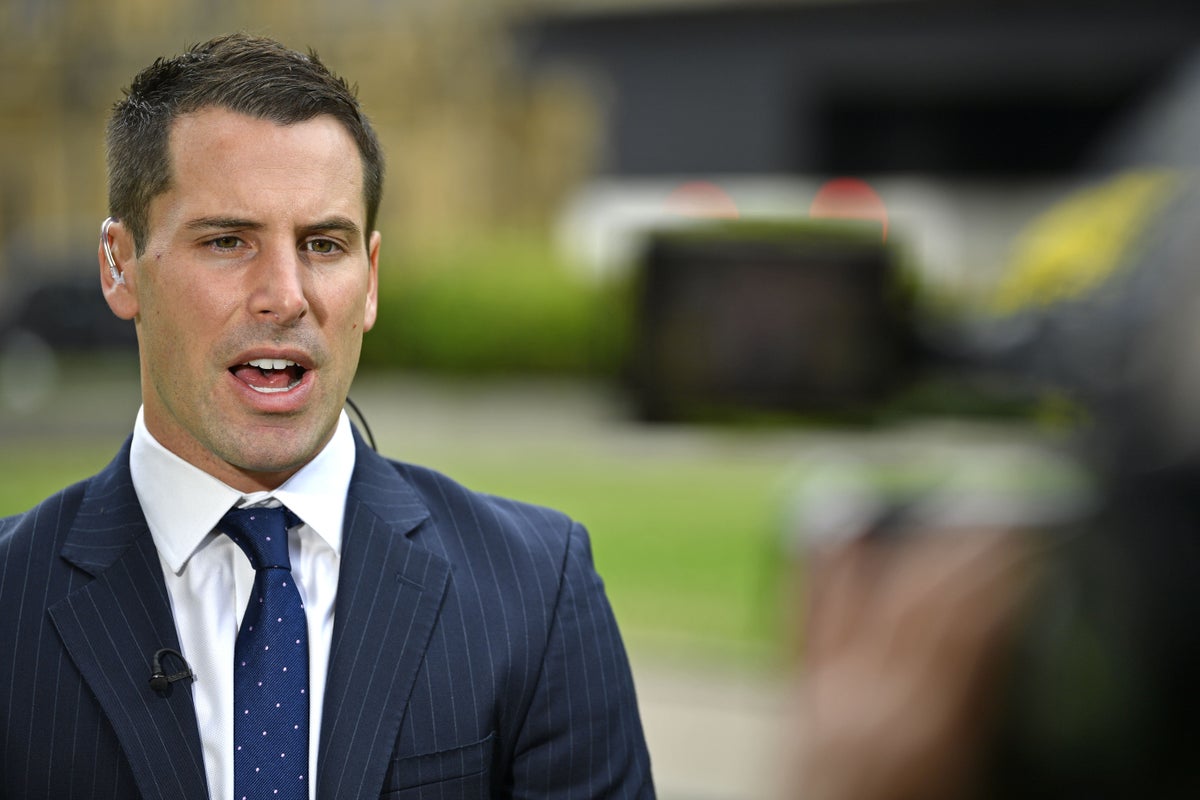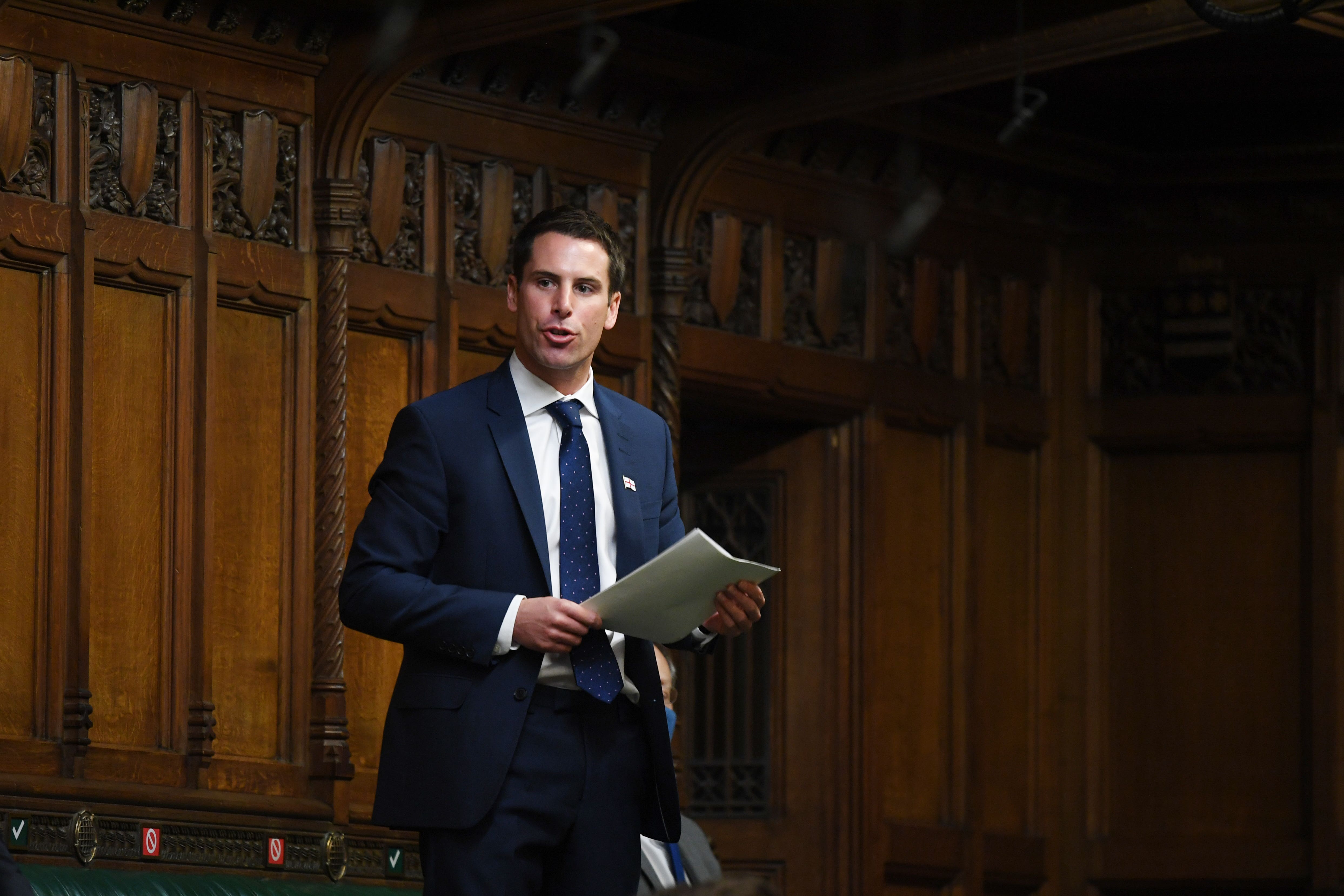
Conservative MP Scott Benton has had the Tory party whip removed pending an investigation into undercover footage of him offering to lobby for gambling industry investors.
Mr Benton was prepared to leak market-sensitive information to an investment fund and ask parliamentary questions on its behalf, in breach of parliamentary lobbying rules, an undercover investigation for The Times found.
A spokesperson for Chief Whip Simon Hart said: “Following his self-referral to the Parliamentary Commissioner for Standards earlier this evening, Scott Benton has had the Conservative Party Whip suspended whilst an investigation is ongoing.”
The decision comes just hours after prime minister Rishi Sunak, who entered office last year promising “integrity” within the party, faced calls to strip the Blackpool South MP of the Conservative whip in light of the revelations.
Mr Benton was caught on camera telling undercover reporters posing as investors how he was willing to take actions which would break Parliament’s lobbying rules.
They are also prohibited from serving as a paid parliamentary adviser or consultant or guiding firms on ways to influence Parliament.
In a meeting in early March, Mr Benton described how he could support the fund, which he believed was set up by an Indian businessman looking to make investments in the UK betting and gaming sector, by attempting to water down proposed gambling reforms.
It comes as the government is carrying out a major review of gambling laws, mulling stricter regulations that could affect operators’ profits.
Mr Benton offered a “guarantee” to provide a copy of an upcoming gambling White Paper to the business at least two days before publication, potentially allowing it to benefit from market-sensitive information.
He also said he could table parliamentary written questions and said he had previously done it on behalf of a company.
Mr Benton said he could offer “the direct ear of a minister who is actually going to make these decisions” and speak to them outside the Commons voting lobby.
The MP agreed with a fee proposed by the reporters in the range of £2,000 to £4,000 a month for two days’ work.
In response to The Times report, Mr Benton said he “had no further contact” with the fake company after the meeting and had been “concerned” that what was being asked of him breached the rules.
Opposition parties weighed in to put pressure on Mr Sunak to act over the revelation.
Labour’s shadow Commons leader Thangam Debbonaire said: “Rishi Sunak has lost control of his own MPs.
“He must get a grip of this new wave of Tory sleaze and take immediate action to stop this shameful cash-for-questions scandal spiraling even further. He must immediately remove the whip from all involved.”
Lib Dem deputy leader Daisy Cooper said: “These shocking revelations are yet another damning indictment of the state of the Conservative Party. The British public are sick of Conservative sleaze.
“Rishi Sunak must strip Benton of the Conservative Party whip immediately. Anything less would make a mockery of his claim to restore integrity.”
Labour deputy leader Angela Rayner tweeted: “That smell? The rotten stench of Tory sleaze. #CashForQuestions.
“Yet another Conservative MP looking to line his own pockets while Sunak does nothing. This PM is failing to deliver the integrity he promised. Only Labour will clean up politics.”

It comes after former cabinet ministers Matt Hancock and Kwasi Kwarteng drew criticism for offering to advise a bogus South Korean company for up to £10,000 a day in a sting by the campaign group Led By Donkeys last month, although there was no accusation of wrongdoing.
In a statement released earlier Wednesday, Mr Benton said: “Last month I was approached by a purported company offering me an expert advisory role. I met with two individuals claiming to represent the company to find out what this role entailed. After this meeting, I was asked to forward my CV and some other personal details. I did not do so as I was concerned that what was being asked of me was not within Parliamentary rules.
“I contacted the Commons Registrar and the Parliamentary Standards Commissioner who clarified these rules for me and had no further contact with the company. I did this before being made aware that the company did not exist and the individuals claiming to represent it were journalists.”







